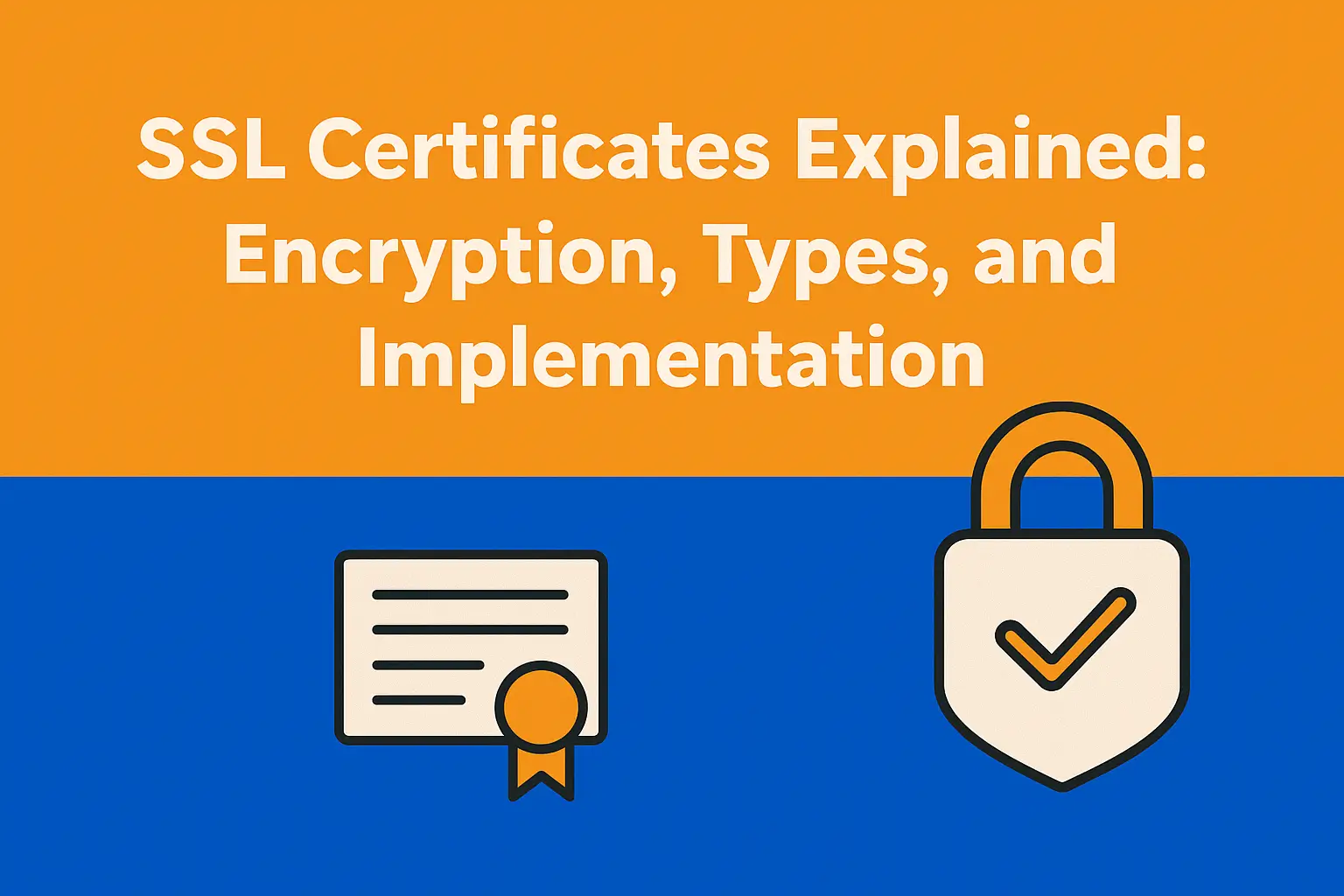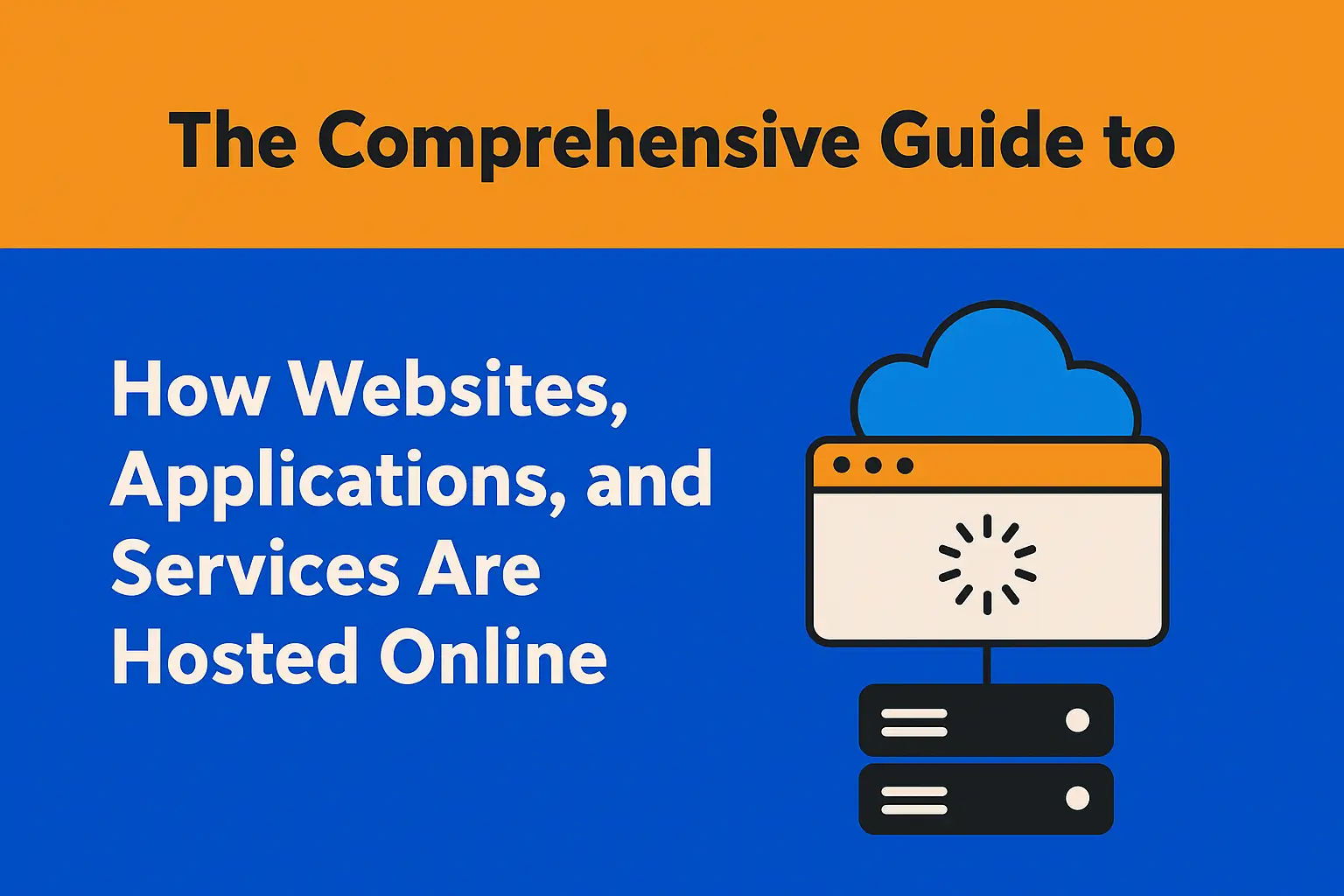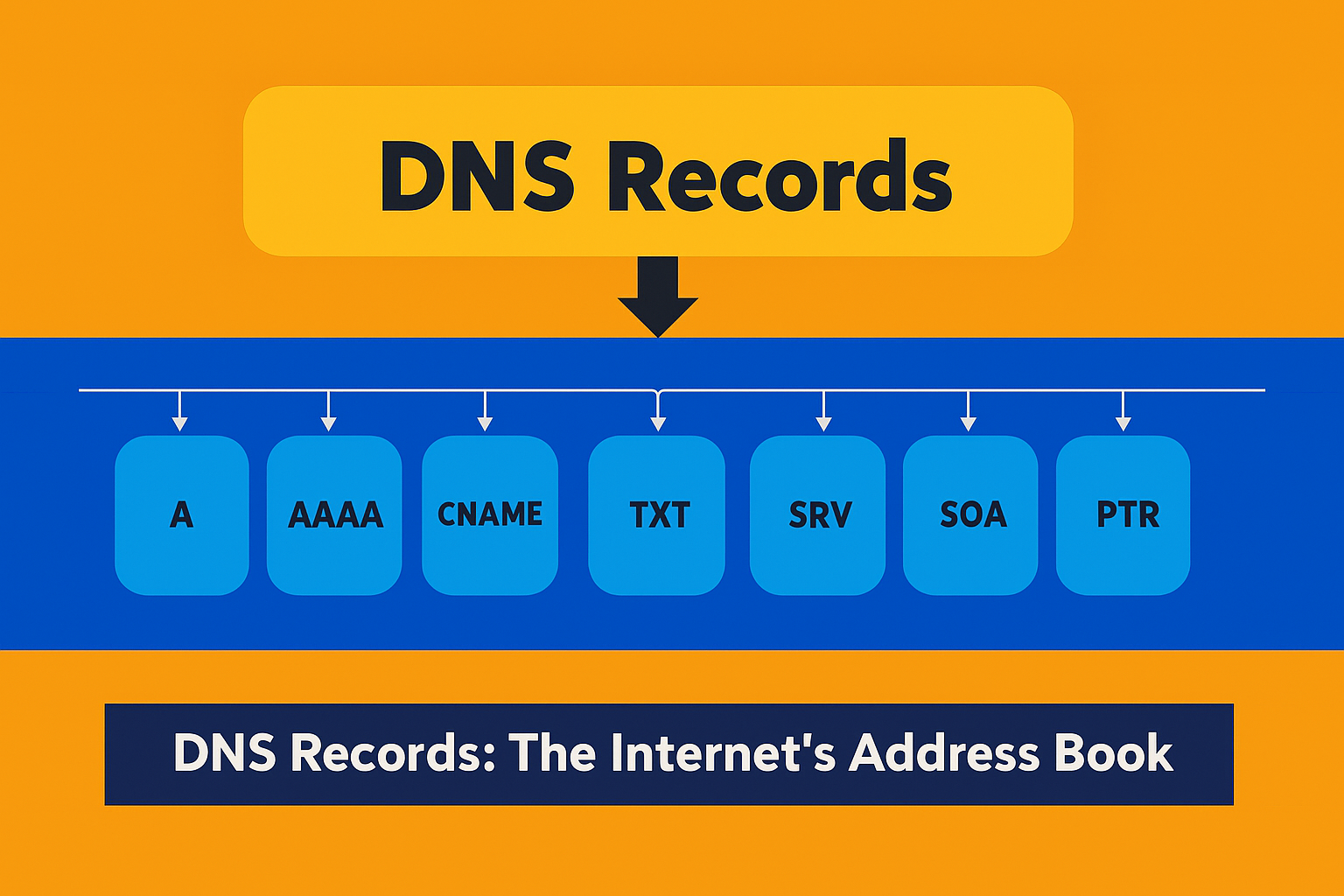
Introduction to Network Solutions Hosting
Network Solutions Hosting represents a crucial component of the modern digital landscape, offering a variety of hosting options tailored to support businesses and individual users. At its core, hosting involves providing a server or network space where websites and applications can reside, thus enabling them to be accessible over the internet. This foundational service ensures that online entities remain operational, secure, and performant, which is vital for users dependent on digital accessibility.
Reliable and efficient hosting services form the backbone of any online presence, whether for a small personal blog or a large e-commerce platform. Quality hosting solutions not only impact website speed and uptime but also enhance security measures, such as protection against cyber threats and data breaches. Choosing the correct hosting solution is pivotal, as it can significantly influence website behavior, user experience, and ultimately, online success.
The right hosting provider will offer scalable solutions, allowing for seamless growth as your website’s traffic and resource needs evolve. They typically include a suite of features like automated backups, customer support, and easy-to-use control panels, all of which contribute to maintaining optimal website performance and reliability. Evaluating these features is essential in making an informed decision about which hosting service best suits your specific requirements.
Moreover, with increasing online competition, it’s imperative to focus on aspects of website performance that hosting can directly influence. These include load speeds, uptime guarantees, and enhanced security frameworks. A dependable network solutions hosting provider will ensure that these factors are managed effectively, thereby providing a solid foundation upon which your digital presence can thrive. As we delve further, we will examine various features and benefits that top network solutions hosting providers bring to the table, highlighting their importance in today’s internet-centric world.
Types of Hosting Solutions
In the realm of network solutions hosting, choosing the right type can significantly impact the efficiency and reliability of your online presence. Here, we explore four prominent types of hosting solutions: shared hosting, virtual private servers (VPS), cloud hosting, and dedicated servers. Each type presents distinct advantages and limitations in terms of cost, performance, scalability, security, and management, making it crucial to identify the option that best suits your specific needs.
Shared hosting is often the entry-level option for many individuals and small businesses due to its cost-effectiveness. In this setup, multiple websites share the same server resources, which helps keep prices low. While shared hosting is budget-friendly, it typically offers limited performance and scalability. Also, the shared nature can pose security risks as a vulnerability in one website can potentially affect all the others on the same server.
Virtual Private Servers (VPS) represent a middle ground between shared hosting and dedicated hosting. With VPS, a single server is virtually partitioned to give websites dedicated segments of server resources. This setup enhances performance and security compared to shared hosting and offers greater flexibility for scaling. VPS can be more cost-effective than dedicated servers while still providing robust features, making it suitable for medium-sized businesses or websites with moderate traffic.
Cloud hosting, a more modern solution, leverages multiple servers to distribute the hosting load. This setup ensures high availability and reliability, as server failures can be mitigated by other servers in the cloud infrastructure. Cloud hosting is highly scalable and offers on-demand resources, making it ideal for growing businesses with fluctuating traffic. However, it can be more expensive than traditional hosting models, but the improved performance and resilience often justify the investment.
Finally, dedicated servers provide the highest level of performance, security, and control. In this model, an entire server is dedicated to a single client, eliminating any risk of resource contention. This type of hosting is best suited for large enterprises or websites with high traffic volumes that require maximum reliability and customization. Dedicated servers come with higher costs and necessitate more management expertise, but the benefits in uptime, security, and performance can be substantial.
By understanding the differences between these hosting solutions, you can better align your choice with your specific business needs and budget constraints. Whether you prioritize cost-saving, performance, scalability, or security, there is a hosting solution that can meet your requirements effectively.
Key Features of Quality Hosting Solutions
When assessing top-tier hosting solutions, several core features consistently emerge as benchmarks for quality. One of the most critical attributes is uptime guarantees. Leading hosting providers often promise an uptime of 99.9% or higher, ensuring that websites remain operational and accessible to users around the clock. This reliability can significantly impact user satisfaction and business continuity.
Another vital feature is speed and performance. High-quality hosting solutions leverage advanced server technology, including SSD storage and optimized server configurations, to enhance load times and overall website responsiveness. Fast performance not only improves the user experience but also positively influences search engine rankings.
Customer support is another cornerstone of exceptional hosting. Top hosting companies offer 24/7 customer support through multiple channels such as live chat, email, and phone. Competent and responsive support teams can troubleshoot issues promptly, minimizing downtime and frustration.
Security measures are paramount in today’s digital landscape. Robust hosting solutions include comprehensive security protocols, such as firewall protection, DDoS mitigation, SSL certificates, and regular malware scans. These features safeguard sensitive data and provide peace of mind regarding cybersecurity threats.
Backup and recovery options are also essential. Leading hosts offer automated backups of website data, with various restoration points to ensure quick recovery in case of data loss or corruption. This feature is vital for maintaining business operations without significant disruptions.
Finally, ease of use can significantly enhance the hosting experience. User-friendly control panels, such as cPanel or Plesk, allow for straightforward management of website settings, databases, and applications. Hosting solutions that integrate seamlessly with popular CMS platforms like WordPress further simplify the user experience, enabling both novice and experienced users to administer their sites efficiently.
Benefits of Reliable Hosting Solutions
Reliable network solutions hosting delivers a plethora of advantages that significantly enhance the overall performance of websites. One of the primary benefits is improved website performance. Websites hosted on dependable networks experience faster load times and reduced downtime. For instance, studies show that a one-second delay in page load time can lead to a 7% reduction in conversions. Hence, faster websites not only improve user experience but also contribute positively to a business’s bottom line.
Enhanced security is another crucial benefit. Robust network solutions hosting comes with advanced security measures like SSL certificates, DDoS protection, and regular backups. These features help safeguard sensitive data and protect websites from cyber threats. According to Cybersecurity Ventures, cybercrime damages are predicted to cost the world $10.5 trillion annually by 2025, highlighting the importance of secure hosting solutions.
Reliable hosting positively influences SEO rankings as well. Search engines like Google prioritize websites with fast load times and minimal downtime, as these factors contribute to a better user experience. Furthermore, secure and stable hosting ensures that websites remain accessible and functional, which is crucial for maintaining and improving SEO rankings.
Higher customer satisfaction is inherent to reliable hosting. Users are more likely to stay and engage with a website that loads quickly and operates smoothly. E-commerce studies indicate that 47% of consumers expect a web page to load in two seconds or less, emphasizing the need for high-performance hosting solutions to meet customer expectations.
Increased scalability is a significant benefit that allows businesses to expand without technical limitations. Reliable network hosting solutions offer scalable resources, enabling websites to handle surges in traffic seamlessly. This flexibility is vital for businesses experiencing growth or unexpected spikes in visitors, ensuring that performance remains intact during peak times.
In conclusion, opting for reliable network solutions hosting is fundamental for any business seeking to enhance website performance, security, SEO rankings, customer satisfaction, and scalability. Investing in such solutions not only supports current operational needs but also lays the groundwork for future growth and success.
Top Network Solutions Hosting Providers
When it comes to selecting a hosting provider, the market offers a plethora of options each with unique features and benefits. Leading the way are reputable companies such as Bluehost, HostGator, and SiteGround. These providers have cemented their status through reliability, robust feature sets, and exceptional customer service.
Bluehost is widely recognized for its user-friendly interface and comprehensive support resources. It offers a wealth of features, including free domain registration for the first year, a free SSL certificate, and 24/7 customer support. Bluehost is particularly ideal for WordPress users, boasting official WordPress endorsement and seamless integration. The company also provides a range of scalable options to accommodate growing websites, making it a versatile choice for small to medium-sized businesses.
HostGator stands out with its unlimited storage and bandwidth across most plans, combined with a 99.9% uptime guarantee. It caters to both beginners and advanced users with its flexible hosting solutions, which range from shared hosting to dedicated servers. In addition, HostGator offers robust security features including free SSL certificates, automatic backups, and 24/7 monitoring, making it a trustworthy option for eCommerce websites that require stringent security measures.
SiteGround is known for its exceptional speed and performance, underpinned by its cutting-edge technology and robust infrastructure. It employs SSD storage, SuperCacher technology, and a free Content Delivery Network (CDN) to ensure fast load times. SiteGround also excels in customer support, offering one of the most responsive and knowledgeable teams available, which is evident from its consistently high customer satisfaction ratings. Furthermore, SiteGround has a strong focus on security, continually updating its systems to safeguard against potential threats.
Other notable mentions include InMotion Hosting and A2 Hosting. InMotion Hosting is celebrated for its superior customer service and reliability, augmented with free data backups and a generous 90-day money-back guarantee. A2 Hosting, on the other hand, is particularly acclaimed for its speed-enhancing features and developer-friendly tools, making it an attractive choice for tech-savvy users.
Each of these top network solutions hosting providers offers a unique blend of features that cater to different needs, from personal blogs to large-scale business websites. By evaluating these key players, users can find a hosting solution that aligns with their specific requirements and ensures seamless website performance.
Comparative Analysis of Hosting Providers
When evaluating the top network solutions hosting providers, several crucial factors emerge as essential for making an informed decision. These include pricing, customer reviews, feature sets, and performance benchmarks. By examining these factors, individuals and businesses can align their specific needs with the most suitable hosting provider.
Pricing is often a significant consideration. Hosting providers vary in their pricing strategies, offering different plans that cater to varying budget constraints. For instance, some providers may offer low-cost basic plans ideal for small businesses or personal websites, while others provide premium services with robust features tailored to enterprise-level needs. Understanding the cost-benefit ratio of each plan is crucial in choosing the right provider.
Customer reviews offer insights into the real-world performance and reliability of hosting providers. Reviews frequently highlight aspects such as uptime, customer service, ease of use, and overall satisfaction. Providers with consistently positive feedback in these areas tend to build trust and generate a loyal customer base. Analyzing these reviews can reveal potential red flags or confirm the provider’s reputation for excellence.
Feature sets are another important aspect to consider. Top hosting providers generally offer a range of features such as unlimited bandwidth, SSD storage, automated backups, and enhanced security measures. Some may also include value-added services like free domain registration, website builders, and marketing tools. Comparing these offerings side by side helps identify which provider delivers the most comprehensive package that meets specific needs.
Performance benchmarks, including server uptime and speed, are critical metrics in assessing a hosting provider’s capabilities. Uptime guarantees, usually expressed as a percentage, reflect the reliability of the provider’s servers. High uptime, closer to 100%, is indicative of a robust infrastructure. Speed is equally crucial, affecting website load times and user experience. Benchmark tests and independent reviews often provide objective measures of these performance aspects.
In summary, a thorough comparative analysis of pricing, customer reviews, feature sets, and performance benchmarks helps in identifying the top network solutions hosting provider that best suits individual or business requirements. Carefully weighing these factors ensures a well-informed decision, aligning with long-term hosting needs and expectations.
How to Choose the Right Hosting Solution for Your Needs
Selecting the appropriate hosting solution requires thoughtful consideration and analysis to ensure it aligns with your organization’s objectives. A methodical approach can significantly simplify this process.
Assess Your Needs: Start by defining the goals of your website or application. Are you running a personal blog, an e-commerce store, or a corporate website? Understanding your specific needs will guide you in choosing between shared hosting, VPS (Virtual Private Server), dedicated server hosting, or cloud hosting. For example, a personal blog might do well with shared hosting, while an e-commerce platform would benefit from the resources and flexibility of a VPS.
Evaluate Your Budget: Budget plays a crucial role in the selection process. Hosting solutions come in a wide range of price points. While shared hosting is generally the most budget-friendly option, VPS and dedicated server hosting tend to be more expensive but offer better performance and control. It’s essential to strike a balance between cost and the level of service required for your project.
Understand the Importance of Technical Support: Reliable technical support can be a lifesaver, especially if your site faces issues outside of regular hours. Prioritize hosting providers that offer 24/7 support with various contact methods such as live chat, phone, and email. Moreover, read customer reviews and testimonials to gauge the effectiveness of their support team.
Consider Future Growth: Scalability is a key factor, particularly for businesses anticipating growth. Choose a hosting solution that can seamlessly accommodate increased traffic and resource demands. Cloud hosting, known for its flexibility and scalability, can automatically adjust resources as needed, making it a favorable option for growing enterprises.
A few questions to ask potential hosting providers include:
- What are your uptime guarantees?
- Can you provide examples of websites similar to mine that you host?
- What security measures are in place to protect my data?
- Are there any hidden fees in your pricing?
- How easy is it to upgrade or downgrade my plan?
By following these guidelines, you can make an informed decision and select a hosting solution that best caters to your unique requirements, budget constraints, and long-term goals.
Conclusion: Making an Informed Decision
In conclusion, selecting the appropriate network solutions hosting is a critical step towards ensuring the optimal performance and reliability of your online presence. Throughout this blog post, we delved into various key features and benefits that top network solutions hosting providers offer. These include robust security measures, excellent uptime guarantees, scalable resources, and superior customer support. Each of these elements plays an integral role in maintaining the seamless operation of your digital infrastructure.
Robust security features, such as advanced firewalls, SSL certificates, and DDoS protection, are indispensable for safeguarding sensitive data and maintaining the trust of your users. High uptime guarantees minimize the risk of downtime, thus ensuring that your website is accessible to users around the clock. Scalability is another pivotal feature, allowing your hosting resources to grow in tandem with your increasing demands, thereby preventing resource bottlenecks and facilitating smooth performance under varying loads.
Moreover, superior customer support ensures that any technical issues are swiftly addressed, thereby minimizing potential disruptions to your operations. Reliable support is particularly crucial for businesses that may not have extensive in-house technical expertise. The availability of knowledgeable and responsive support staff can make a significant difference in maintaining the smooth operation of your network solutions hosting environment.
Given the multitude of factors to consider, it is vital to invest time in thorough research to identify a hosting provider that aligns with your specific needs and long-term objectives. Review their offerings, read user testimonials, and perhaps even consult with experts. By doing so, you can make a well-informed decision that will underpin the success and stability of your digital ventures.





0 Comments